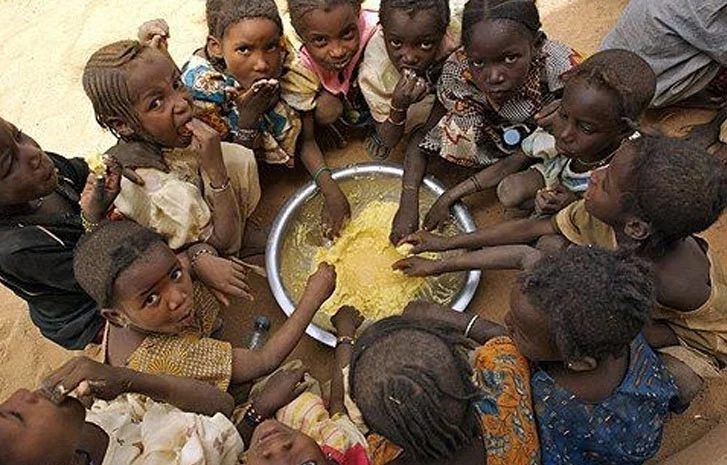Nigeria is grappling with a deepening hunger crisis, particularly in its northern regions, where millions flee violence from terrorist groups. Aid organizations, including the World Food Programme (WFP), warn of a dire situation, with 600,000 children facing life-threatening malnutrition.
As the need for emergency support surges, funding has plummeted, leaving agencies struggling to meet demand.
In Borno State’s Bama refugee camp, food aid is shrinking. Only the most critical cases now receive help, leaving many vulnerable families without support. The crisis, fueled by conflict and displacement, threatens to worsen without immediate action.
Aid Funding Plummets
Until early 2025, the United States provided over half of Nigeria’s humanitarian aid. However, following President Donald Trump’s inauguration, the U.S. dismantled its primary aid agency, slashing support drastically.
Other Western nations have also reduced development budgets, compounding the shortfall. The WFP now faces a $115 million gap to sustain its programs in Nigeria, forcing cutbacks across Africa.
Last summer, the WFP shuttered over 150 clinics treating malnourished children and infants. “Millions rely on us, but the funds just aren’t there,” said Ancel Kats, a WFP official in Nigeria. The loss of resources has strained efforts to combat hunger in a region already battered by violence.
Impact on Communities
In Bama, the reduction in food distribution has hit hard. “These people depend on us for survival,” said Soumbami Tukunabo, an aid worker with InterSOS, an Italian relief group.
“Telling them we’re cutting back because of global funding shortages is heartbreaking.” The camp, home to thousands displaced by conflict, faces growing desperation as rations dwindle.
Beyond food, the crisis affects healthcare. The end of U.S. aid has stripped Nigeria of $600 million in health funding, roughly a fifth of its health budget.
This has weakened efforts to treat malnutrition and other critical conditions, leaving vulnerable populations at greater risk.
Broader Implications
The aid cuts come at a time when Nigeria’s north faces relentless insecurity, driving mass displacement. Families fleeing terrorist groups often arrive in camps with nothing, relying entirely on humanitarian support.
The reduction in aid not only threatens lives but also undermines stability in a region critical to West Africa’s security.
Aid groups are sounding alarms, urging global donors to step up. The WFP and partners are prioritizing the most urgent cases but warn that without new funding, even these efforts may collapse. The crisis highlights the fragility of humanitarian systems when major donors withdraw.
Call for Action
Nigeria’s situation demands urgent international attention. Kats emphasized the need for renewed funding to restore food and health programs.
“Every day we delay, more lives are at risk,” he said. Aid workers like Tukunabo stress the human toll, noting the despair in camps as supplies shrink.
The crisis also sparks calls for Nigeria to bolster domestic resources to address hunger and insecurity. As global support wanes, local solutions and regional cooperation become vital. For now, aid agencies scramble to fill gaps, but the scale of need outpaces their capacity.
Hope Amid Hardship
Despite the challenges, aid workers remain committed, advocating for the millions affected. The plight of Nigeria’s children, especially the 600,000 at risk, underscores the urgency.
Communities in Borno and beyond look to the world for help, hoping for a lifeline to ease their suffering. Nigeria’s hunger crisis is a call to action, demanding swift, collective effort to save lives and restore hope.
READ ALSO: Zimbabwe’s ZANU-PF Seeks to Extend Mnangagwa’s Rule to 2030




















